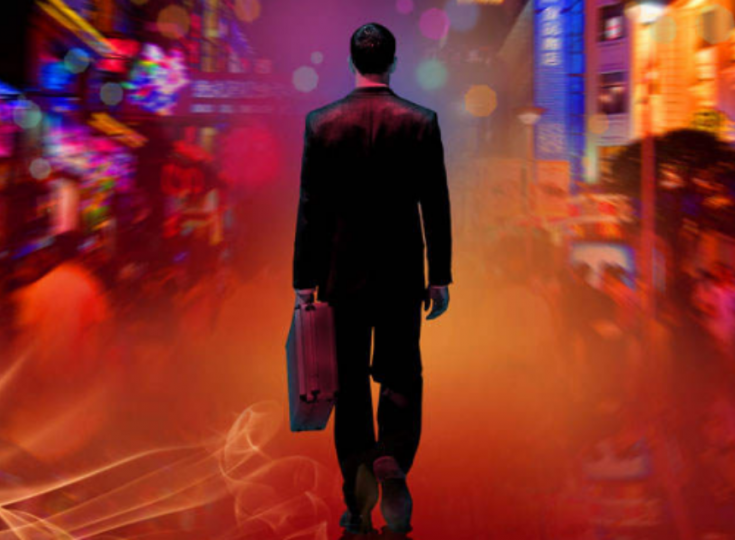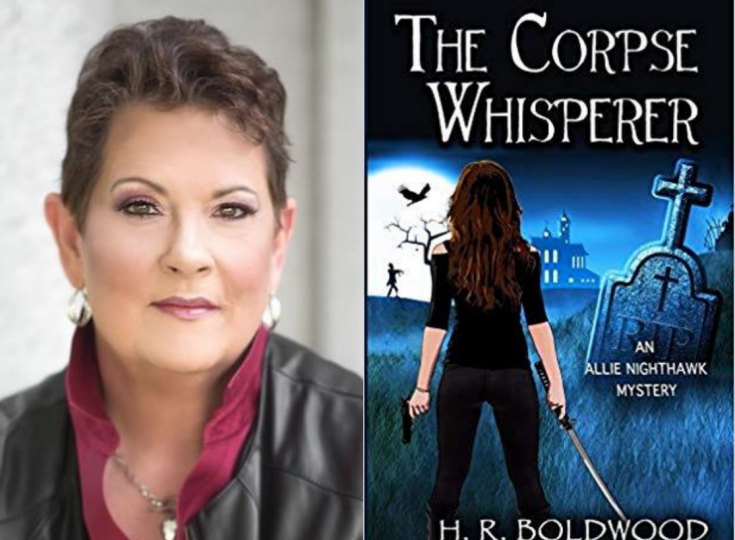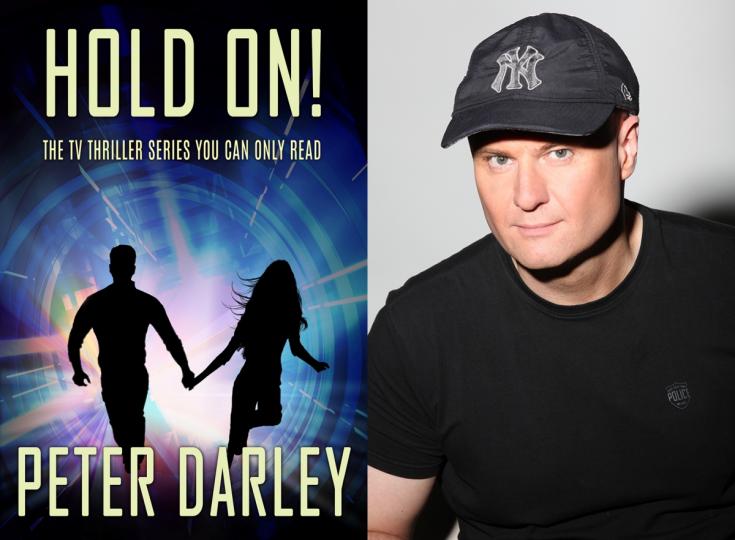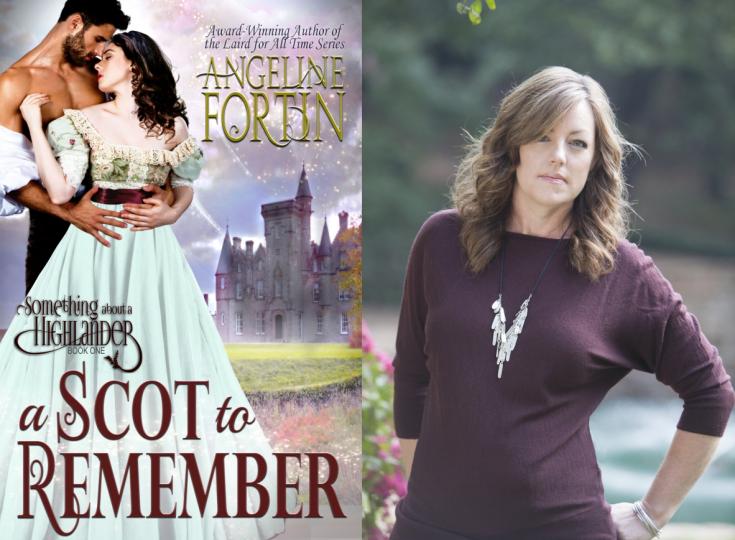Erec Stebbins - Pulse-Pounding Sci-Fi Thrillers
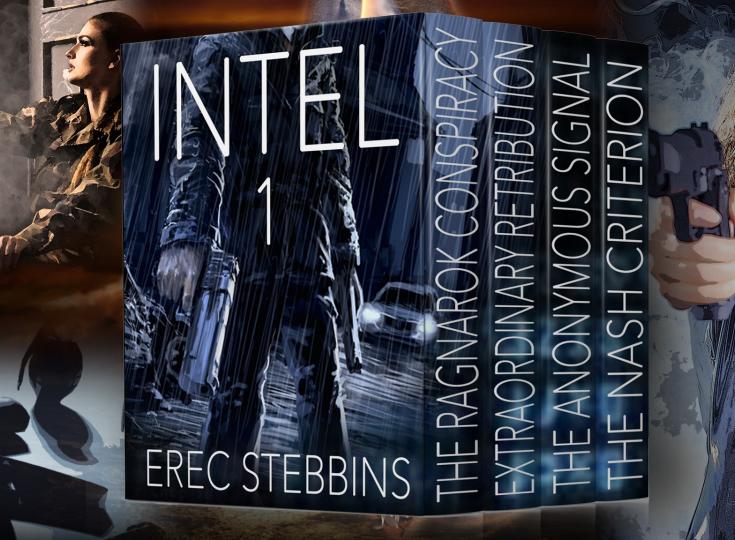
Erec Stebbins is a biomedical researcher who writes novels in a variety of genres, focusing on thrillers and science fiction. His novels have been called "unique" and "pulse-pounding" (THE RAGNARÖK CONSPIRACY), "profound, reminiscent of Bradbury" (DAUGHTER OF TIME TRILOGY), and "startlingly dark" (EXTRAORDINARY RETRIBUTION) with five star ratings in Foreword Reviews, San Francisco Book Reviews, Portland Book Review, and others. As our Author of the Day, Stebbins tells us about his Intel 1 Omnibus.
Please give us a short introduction to what Intel 1 is about.
INTEL 1 began as an experimental FBI branch formed after the 9/11 attacks. They used unorthodox methods and made unusual hires of talented yet often flawed agents who nonetheless proved anomalously successful in combatting terrorism. However, over the course of the series a lot of changes occur in personnel and the mission of INTEL 1, but to say much more would be to start dropping spoilers.
Did you plan from the start to write an Omnibus? How do the stories in the books tie in with one another?
I began with a single novel, The Ragnarok Conspiracy, and I had not planned a series (now it's at book six). I was in the middle of writing a second thriller conceived independently of the first, but was encouraged by my publisher at the time (Seventh Street Books) to link it and create a series. I did this but ended up going indie. The four novels in the omnibus are the first four novels of the INTEL 1 series with book one introducing the bulk of the characters and the agency, the second book opening a new front with a pair of new characters, and the 3rd and 4th tightly linking all the characters in a connected storyline. Books 1 and 2 can be read independently. Books 3 and 4 are a tight pair that can be read as a duo without 1 and 2, but the stories and particularly the characters are much enriched if books one and two have been read in advance. Some characters have quite an arc.
Three of the books feature Armageddon scenarios. What fascinates you so much about this topic?
I've said before that I consider thrillers the contemporary form of fantasy or science fiction. I'll just quote myself from my Amazon page: "Fantasy takes place in the past, with conceits like magic and fairies, and science fiction is the future counterpart, with the magic of advanced technology and aliens. Why are thrillers the contemporary version of these to my mind? Because they also allow for the conceits of events that are not completely realistic, but, because so, allow the author creative license he or she would not have otherwise." Global threats are a subgenera of thrillers from James Bond to virus outbreaks. They are suspenseful, frightening, and often intriguing backdrops to examine human interactions in extremis. Certainly not for everyone, and Hollywood has a tendency to overuse the power of such narratives and thereby numb people to them (or give a subset of people a downright allergy to the genre). For myself, I enjoy the massive, Beethoven-like storms of such stories.
You also included unusual love stories in some of the books. Why did you take this approach?
In the extreme and life-threatening worlds my characters inhabit, affection and bonding offer a counterpoint to the darkness around them and is as well as a common psychological effect of people who live through trauma. It was a natural thing for my characters to develop deep feelings for each other in such circumstances. Not all of them are romantic, of course. But some are. And like the "Interesting and quirky cast of non-stereotypical misfits" (Manhattan Book Review) I have in my novels, their love stories run the gamut as well.
Besides writing, what other secret skills do you have?
By day I'm a scientist creating molecular images of pathogenic proteins. I also make musical instruments (fipple flutes both from wood and using 3D printing technologies).
What inspired you to write The Ragnarok Conspiracy?
Living through the 9/11 attacks in NYC. That impacted me psychologically. My kids' school was filled with crayon drawings of burning towers and airplanes. I saw a mountain of smoke pour into Brooklyn from my apartment. It hit everyone and I've described my response in writing about it as a kind of exorcism. But even more so the response of the nation and government to the attack - that very much informs all my books. I come from a decidedly non-conservative point of view of what America (and any nation) should be like in terms of its actions, ethics, moral framework. After 9/11, I didn't like what I saw happening to America, the people, the powers that be, cultural attitudes. It seemed a retreat from liberty and decency toward a fear-based grasp for security. I strongly believe that jettisoning the former elements is the surest way to jeopardize the latter. And I agree with Benjamin Franklin's quote: "Those who would give up essential Liberty, to purchase a little temporary Safety, deserve neither Liberty nor Safety."
My moral and ethical positions do alienate some hard-core partisans. Many mistakenly pigeonhole such positions into "political views", not making a critical distinction that my politics is informed by my morals, not the other way around. I've been critical of democratic and republican politicians and positions. Of late however, especially with my latest novel in the INTEL 1 series, China Girl (published December, 2019), moral considerations clash strongly with the politics of many of those on the Right (despite the fact that the Republican Party has lost many conservatives just for this reason, as many could not stomach the current administration and what the GOP has had to do to work with it). Even my fifth thriller, Androcide, which had a lot to do with gender as well as current events, rubbed conservatives the wrong way. So I get widely divergent reviews that are based not so much on the quality of the novel but on a reader's hyper-emotional response to the politics.
Sadly, since 9/11, the thriller genre has been hijacked by far right-wing novelists with a decidedly partisan slant, and to many modern readers of the genre, my more left-leaning books come off I think as some sort of heresy. That's why my first novel gets described as one with a twist: "international intrigue with a unique twist" (The Washington Times Communities), "turns the traditional terrorist thriller on its head" (Allan Leverone, author of The Lonely Mile), and "take on terrorism with a twist" (Booklist). It's not so much a twist as that I was simply writing against the tsunami of right-wing thrillers.
But it wasn't always like that, from Robert Ludlum to John Le Carre and others. As I mention, 9/11 was a turning point for the nation and its attitudes, and fiction was no less impacted by these changes than other areas.
Readers describe Extraordinary Retribution as a book with a lot of twists. Did you plan them out before you started writing, or did some of it just "happen" along the way?
The key events, particularly the ending events, where in my mind before I wrote a word. This is often the case with my novels. In fact, I often get motived to write the novel by first writing the ending if it's a good one. The desire to realize that ending helps push me to put down 100,000 words to get there.
The Anonymous Signal deals with a computer virus that eats through the Internet. This raises the question of whether technology will save us or destroy us. Which do you believe?
Technology is a tool. How we use the tool is what will help or harm us. For myself, the issue is not will technology "save" or "doom" us, but will we use technology to do good or evil to ourselves and the planet. I think technology has done wonders - the average standard of living for the world has been steadily increasing for decades. But we've also lined the planet with nuclear weapons and are wrecking the biosphere with burning fossil fuels. If the 2nd Law of Thermodynamics is to have its say, the picture is less sanguine. It's much easier to destroy than to build. To avoid destruction, much more energy has to go into a system to keep it functioning. If we don't put all our societal efforts into bettering the world and tempering our worse instincts, we're likely in big trouble as a species.
The Nash Criterion features a conspiracy. Why, would you say, are we as humans so fascinated by conspiracies?
Just because we're paranoid doesn't mean they aren't out to get us. But I'd say three reasons. The first is the simple fact that time and time again, history has shown that the powerful conspire to keep power. That involves injustice, deception, and crime. Most of my novels deal with exactly that aspect of conspiracies. Secondly, we are pattern recognition creatures. Likely helped our ancestors in the dark when lions prowled. If you are a little over-thinking the shadows and noises and imagine things that aren't there and run, better than to not think of it and get eaten. The problem comes in the complex modern world that is frankly beyond the abilities of our minds to process all the information. Couple that to true conspiracies that are revealed around us regularly and some laziness in thought because digging for facts and being logical is hard work, people love to run with crazy ideas of how things work. Thirdly, people crave explanations with purpose - in other words, they'd rather believe an illogical conspiracy theory than accept the fact that the universe is often capricious. Okay, a number four: sometimes it's just fun. Sometimes imagining clever shenanigans of power is good entertainment. And it's hard to get one of my Armageddon scenarios without some kind of conspiracy in there.
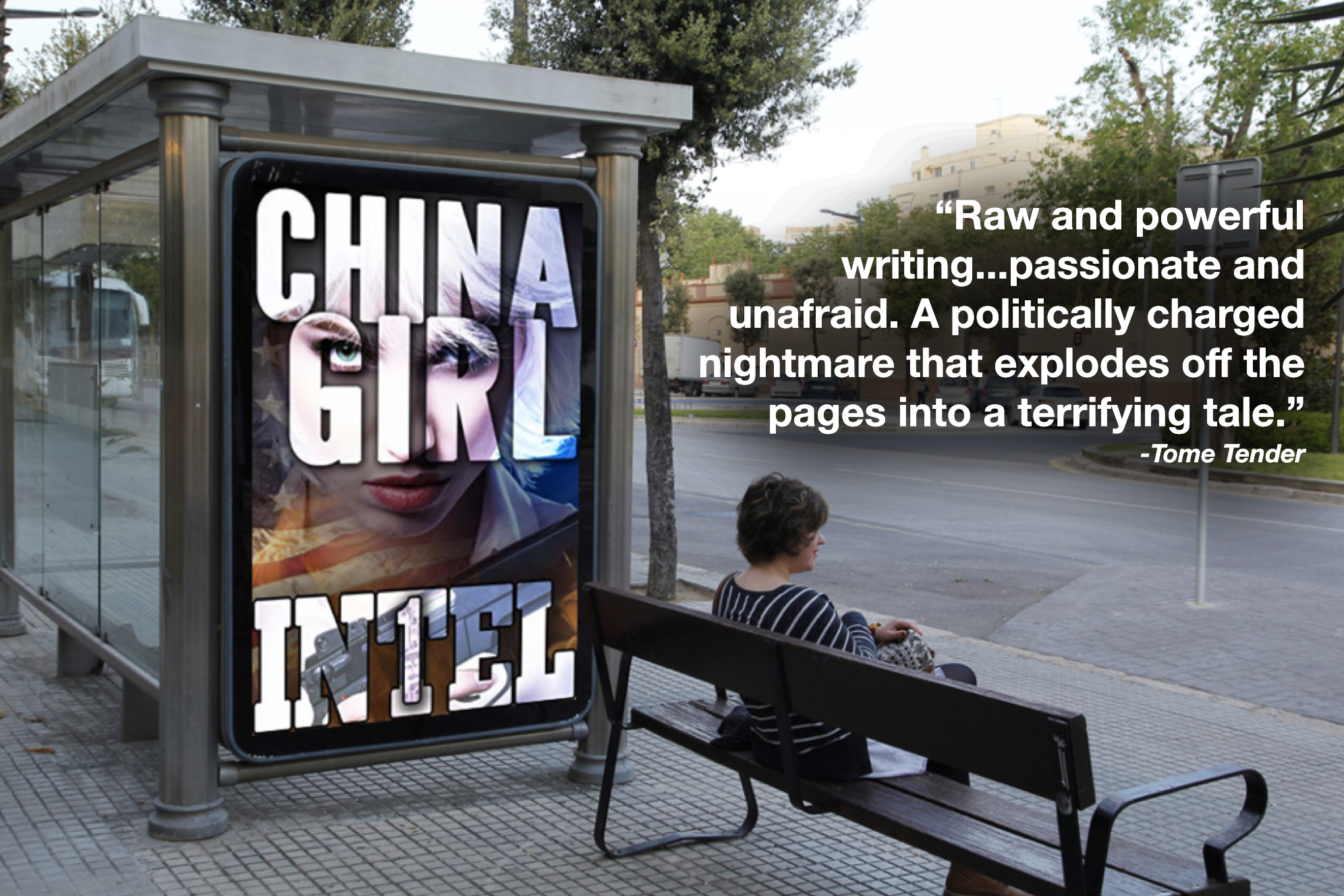
Which book took you the longest to write, and why was that so?
Definitely The Ragnarok Conspiracy. While the first draft took about three months (which is typical for a first draft for me), I spent four years re-writing the novel after that. It was my first thriller, and I had come from decades of scientific writing, and the first versions were too impenetrable, too many characters and plot lines, formal writing styles. I got a lot of feedback and rejections from agents that led to major re-writes. I learned a lot from that, and from the process of writing each book. My first drafts are now much tighter, but still require many months of rewrites and feedback. In fact, years later when I got the rights back to Ragnarok, I did a re-write informed by my experience with three more thrillers. In that effort, I shaved off 10,000 words (bringing the novel down to 90,000 words) and I did that without cutting a single scene. Obviously this produced a much tighter and driving narrative. So, including the second edition re-write on 2017, you could say it took my ten years to finish that book. Nowadays, I can finish a novel from start to final version (including developmental and copy editing) in about 6-9 months. If I didn't care so much for quality, likely 3-5 months.
When starting on a new novel, what is the first thing you do?
I outline a rough plot. Thrillers are very plot driven, and if you don't have it structured both coherently and correctly, it can be a mess if there is any level of complexity to the story. I also write out descriptions of new characters, their backstories, and key scenes that will occur in the novel, signposts in the narrative. Then I get down to the nitty-gritty of writing chapters and moving through the plot. All this is not to say that it's written in stone. As I write new things happen, even new characters, new plot threads or major changes in previous plots. But I start with a rough skeleton and go from there.
Do you have any interesting writing habits? Favorite writing spot, best time of the day to write, sources of inspiration?
With a demanding day job, I write when I can and as fast as I can (which leads to a lot of cleanup later). One habit I had was to squeeze in writing time after the household has gone to sleep. I have natural night-owl tendencies. But that is also hard, as with kids who are up at the crack of dawn and a job, I can't sleep in late, so lack of sleep and all that.
Where can our readers discover more of your work or interact with you?
My website is the place to go (there is the whole SCIFI genre I write in as well):
erecstebbinsbooks.com
